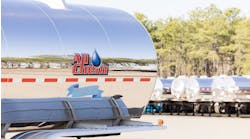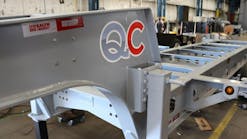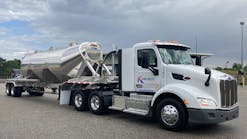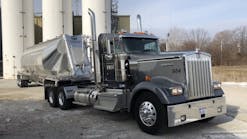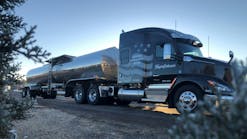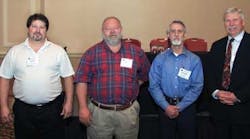Expect to see more Environmental Protection Agency (EPA)-related inspections of tank wash racks in coming years. Also, expect more and steeper fines for violations that brought little more than a warning or slap on the wrist in the past.
This was the warning delivered by Gary Carroll of The WCM Group Inc. He was one of several speakers providing an environmental regulatory update during the National Tank Truck Carriers Tank Cleaning & Environmental Council Seminar that took place April 5 and 6 in Nashville, Tennessee.
“We're seeing more inspections initiated by POTWs (publically-owned treatment works),” Carroll said. “Inspectors are spending a lot of time when they go to tank wash racks and other locations. They are looking for violations that can generate revenue.
“State environmental inspectors are spending more time in the field, and you are probably going to be dealing with them a lot more frequently. The feds under the Obama Administration want a much more aggressive enforcement effort, and that will have an impact on your businesses in coming years.”
It is critical for wash rack managers to become more knowledgeable about local environmental regulations. Carroll reviewed some of the regulations that are generating more enforcement activity from local and federal regulators.
Recently, Texas state environmental enforcers have notified tank wash racks in LaPorte, Texas, that the facilities should be classified as metal finishing operations due to the chemical brightening that are used during tank cleaning.
“We're only seeing this in one Texas location right now, but this could have serious implications nationwide,” Carroll said. “Enforcement of these regulations could be bad news for some tank cleaning operations.”
Categorizing wash racks as metal finishing operations would bring requirements to test wastewater for a broad range of metal residues. Wash racks would have to develop plans for handling toxic organic compounds. Passivation processes could be impacted.
Wash racks almost certainly will see more enforcement of hazardous air pollutant (HAP) rules. When tank trailers that have hauled HAPs are cleaned, the facility must provide a closed-vent system with a control device that reduces HAP emissions by 90%.
The wash rack operator must provide written certification that the facility can meet the HAP control requirements. The HAP treatment systems typically include a flare, and the wash rack must be able to demonstrate that the flare is being properly tested and maintained, and records are kept of all such activities.
Carroll added that HAP venting control devices are mandatory even if state and federal environmental agencies do not specifically require an HAP control device at a wash rack. Failure to comply could be very expensive.
Waste scrutiny
Carroll cautioned that hazardous wastes are coming under more scrutiny. Wash rack managers must pay closer attention to regulatory requirements related to testing and documentation. “You must document the processes you follow when you are making your waste classification,” he said.
If a material is not listed waste, the generator must determine whether it exhibits any of the hazardous materials characteristics. This includes the ability to cause a fire under certain conditions, to corrode metal containers such as storage tanks and drums, to react and cause explosions, toxic fumes, gases, or vapors when heated, compressed, or mixed with water. Toxicity must be determined.
Even ordinary wash rack trash is getting more attention from the regulators. Some companies have been fined just for throwing away lightbulbs and related trash that wasn't labeled as universal waste.
Regulators are becoming more restrictive in the way they define plant trash. A recent letter from the Texas Commission on Environmental Quality defines plant trash as Class 2 waste, such as paper, cardboard, glass, aluminum foil and cans, steel, plastics, rope, twine, empty containers with a five-gallon or less capacity, and food wastes.
Contaminated personal protective equipment, such as dirty rubber gloves, cannot be disposed of in plant trash. These items must be drummed for proper disposal.
Chuck Boyd with PSC Container Services Division said his company is seeing more stormwater runoff inspections. In addition, EPA officials are passing down to the states much stricter limits on pollutants. “For instance, in some of the areas where we operate wash racks, allowable mercury levels are being dropped to non-detectable,” he said.
Jay Sims, Shreveport (Louisiana) Tank Wash, said enforcement of wastewater treatment regulations has become much tighter. That is one reason his company ships all wastewater offsite for treatment.
Environmental enforcement is becoming much more aggressive in California, according to Andrew Woods, Bulk Transportation. Increasing environmental enforcement is coming from POTWs in California in part because individuals can sue municipal water boards to compel enforcement activity.
Criminal charges are more likely to be filed against companies when violations of wastewater discharge rules are alleged. Even if the charges are unjustified, defending against them is expensive.
More aggressive environmental enforcement is bringing higher wastewater disposal costs, and many wash racks are facing rising surcharges related to chemical oxygen demand (COD) factors.